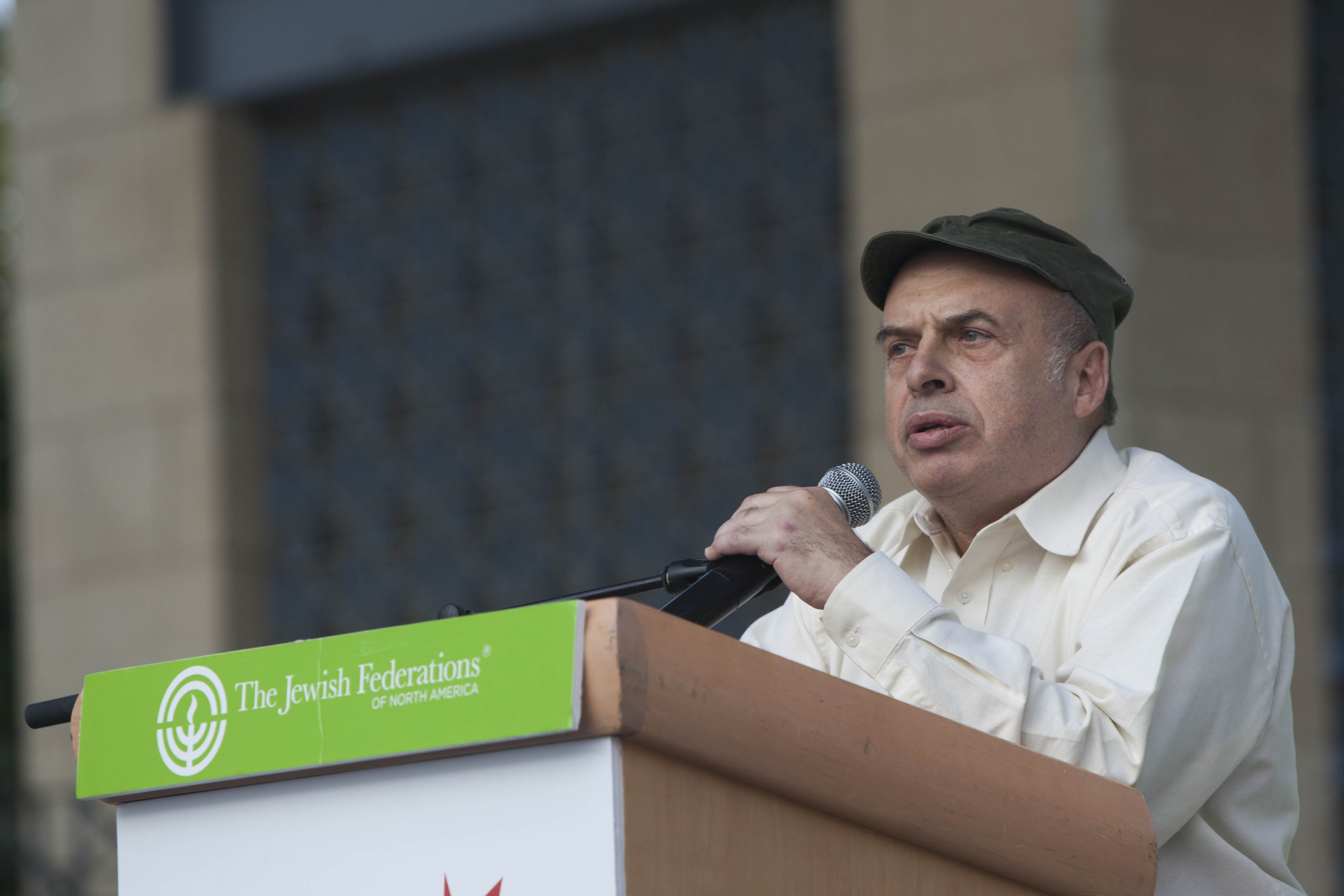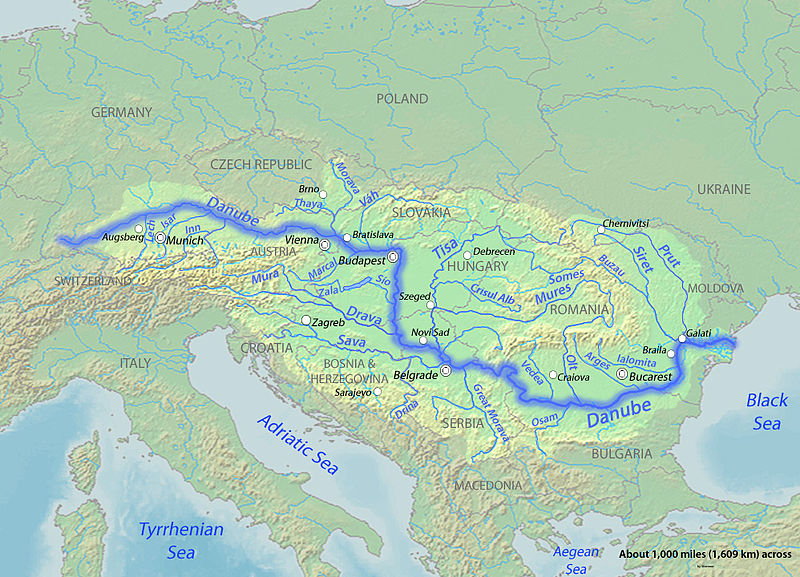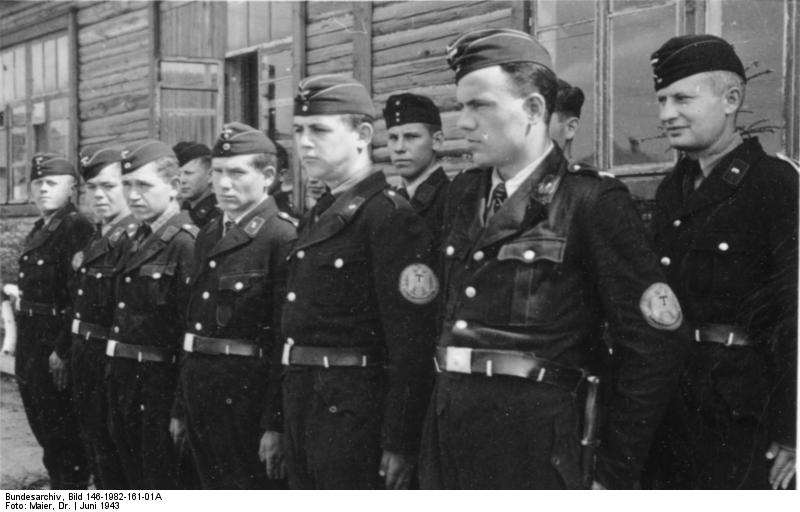The post-liberal atmosphere Natan Sharansky sees is rooted in disdain for non-Western Europe – of which the Jews were a vital part.
Natan Sharansky, head of the Jewish Agency, poignantly identifies the hatred for national identity – including Jewish national identity – among European elites • The key to the puzzle lies in the modern history of a region Sharansky knows well – non-Western Europe • On the prejudice and disdain towards a misunderstood region, and to whom Zionism owes a great ideological and spiritual debt

In a forthright article in Mosaic, Natan Sharansky does us a valuable service in explaining the roots of disdain in Europe for Jews in general and Jewish national rights in particular. He correctly points to a 'post-liberal' culture which derides national identity and ironically extolls the most anti-liberal and violent minorities. The voices he brings from Europe about what Jews can and can't do are very troubling to say the least.
Yet I believe Sharansky missed a key part of the puzzle of this phenomenon, one which he must be aware of: the disdain of Western and Northern Europe for the people in the rest of the continent.

Nationalism in "non-European Europe"
The region between the Oder and Volga rivers and between the Baltic Sea and the Balkans is an amazing and largely unknown territory which I call 'non-European Europe'. It is a land of enormous geographical, ethnic, religious and historical complexity. It is a region that defies the kind of neat uniformity of England, France or Germany, a place in which dozens of languages are spoken and ethnicity is something to celebrate, not hide.
This reality is not alien to Jews. The overwhelming majority of Jews in the 19th and 20th centuries originated from these lands. Their first exposure to urban modern life came not in Paris and London, but in Vienna, Budapest, Warsaw, Riga and elsewhere. Almost all of the great Zionist political leaders – from Herzl to Ahad Ha'am to Jabotinsky – cut their cultural and political eye-teeth in the multi-ethnic empires of Russia and Austria-Hungary (and the successor ethnic states). To this day, we still speak in the political language and codes inherited from non-European Europe, not the monism of France or the multicultural assimilationism of America.
And therein, as the bard would say, lies the rub. For the elites of Western and Northern Europe, nationalism in non-European Europe is the bane of civilization, a recipe for war, xenophobia and genocide. According to a narrative common not only in Europe but in the United States, the breakup of the great empires in non-European Europe and the creation of several small nation-states in their place was a great disaster.
Although formally democratic and respectful of minority rights, one by one these states succumbed to all forms of dictatorship and authoritarianism. The Jews, at first enjoying unprecedented civil rights, found all of their rights reduced and some cases shunted from public life – as was often the case for other ethnic minorities. When Czechoslovakia was carved up at Munich in 1938, it was the only country in non-European Europe which could seriously be called a democracy.
What followed was predictable and tragic, as per the narrative. First, came war and the Holocaust, with radical nationalists in all countries helping the Nazi death machine – not just to kill Jews but to settle old inter-ethnic scores. At the end of the Second World War, millions of ethnics on the 'wrong side of the border' – not just Germans but other groups – were pushed out into areas in which they were a majority. It was a massive movement of nations involving suffering and deprivation that makes the Palestinian Nakba look like a stroll in the park.

The Jew as non-European European
For European elites, because the ethnic nationalisms of non-European Europe had caused the worst violent cataclysm in human history, they must be destroyed or diluted beyond recognition. And whether they acknowledge it or not – Israel is a constant reminder of the continued existence, if not strength and resilience of ethno-national identity which the EU was meant to supplant if not erase outright.
I think it is no coincidence that Sharansky encountered anti-nationalist and anti-ethnic sentiments among Belgians and French. Would his interlocutors in non-European Europe be as negative? Would Czechs, Poles, Latvians, Bosnians and Serbs think that ethnicity is an evil, 'invented' identity and the source of all evil? Somehow, I am doubtful.
This hatred of nationalism in all its forms creates all kinds of problems. For one thing, it is ahistorical. None of the nation states in non-European Europe save the USSR or Nazi Germany was powerful enough to threaten their neighbors, much less world peace. If anything, they were too weak to resist both when the time came. Furthermore, it took the malignance of the Nazi ideology to drive the Holocaust. Left on their own, the nation states certainly would have restricted the rights of minorities. But without Nazi Germany, it's hard to see any individual state initiating mass slaughter.
Even more importantly, the narrative of national failure involves too restricted a time frame. It is as if to say that if newly founded states failed in twenty years to have a stable democracy, they blew their chance. This is typical Western European ahistorical chauvinistic baloney. Few countries made a historically smooth transition to stable democracies. France went through five republics, two empires and one monarchical restitution – many of which involved bloody conflict. The United States fought a horrific civil war over the anomaly of slavery in a democracy. Even Great Britain fought a series of wars in the 18th century before the political dust settled and stabilized. Scandinavia is a rare exception – and they were one of the most ethnically homogenous regions in Europe.
The expectation of nothing short of perfect democratic success from the new states of non-European Europe should sound familiar to any Israeli or Jew who gets an earful on Israel's flaws. Somehow, the fact that almost all the states emerged from the thumb of the USSR as fully functioning democracies is of no interest. Not only Israel, but any country east of the Oder is thus held to a standard no group of fallible humans could possibly meet. This is to say nothing of the fact that phenomena like imperialism and communism were often as bloody or even bloodier than most modern nationalisms.

Nationalism as a Positive Good
But all this is to miss the point, and that is that to fight nationalism as such is to fight human nature. As a professor of mine once said, if nations are "invented", then they've been repeatedly "invented" since the beginning of human history. Mark Twain once quipped that if Moses didn't write the Torah, then it must have been some other guy named Moses. Similarly, if people didn't associate with one large human group, they'd associate with another.
Man is a social and a relational animal, and the overwhelming majority of humanity has an inherent need to belong to groups – be they families, religions, clubs, political parties and yes, nations. To extoll minorities for maintaining and strengthening group identity – on whatever basis, be it race, class or gender or otherwise – and at the same time deny the same to those who happen to be in the majority is to engage in the basest of hypocrisies. The EU in this sense is no different than the caricature of ethnic nationalism it wishes to destroy, striving to replace an 'invented' nation with an even more ethereal 'global identity'.
The alternatives to group identities – the perpetual atomization, undermining and destruction of all relational groups including families or the forced homogenization of humanity into one big group of robots walking in lockstep – seem to me far worse than the healthy existence of many independent nation states, each with their own state to call home.
Is nationalism perfect? Absolutely not. There are flaws and dangers in nationalism, just like any other human phenomenon. One can moderate or mitigate its excesses, but to expect perfection from it is simply not serious. The conservative and classical liberal tradition represented by Mida is about working with human nature to produce a better, if not perfect, world. Perhaps it is time that Western and Northern European elites also begin to work with human beings as they are – with their flaws, foibles, hopes and dreams – rather than force them all into a procrustean bed to fit the desired utopian image conjured up by theorists. As a survivor of the USSR, Natan Sharansky surely knows that such projects do not have a happy end.
To receive updates on new articles in English, join Mida on Facebook or Twitter or join our mailing list.




